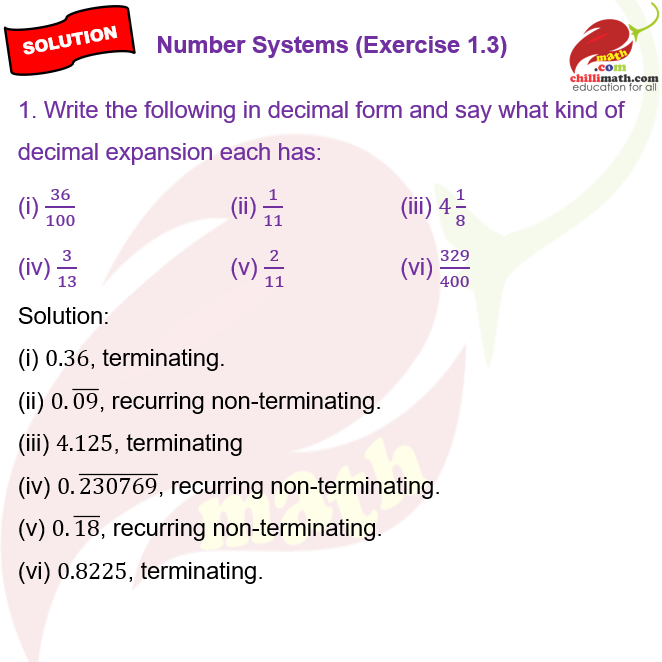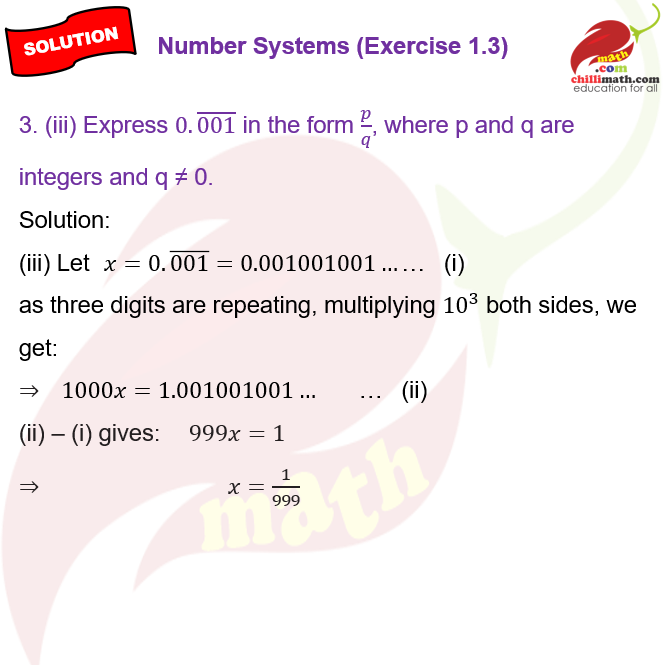Menu
3. Express the following in the form \(p\over q\), where p and q are integers and q ≠ 0.
(i) \(0.\overline{6}\)
(ii) \(0.4\overline{7}\)
(iii) \(0.\overline{001}\)
Class 9
Number Systems
Exercise 1.3
1. Write the following in decimal form and say what kind of decimal expansion each has:
3. Express the following in the form \(p\over q\), where p and q are integers and q ≠ 0.
7. Write three numbers whose decimal expansions are non-terminating non-recurring.
9. Classify the following numbers as rational or irrational:



